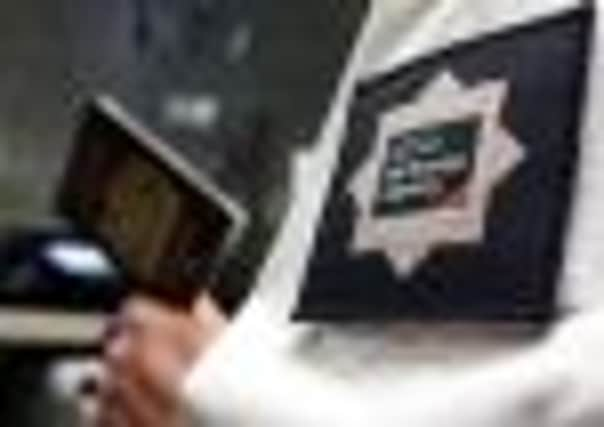Exclusive: Border agency pays £1m compensation to foreign criminals


Convicted drug dealers, burglars, thieves, sex offenders and a paedophile are among a list of more than 40 British offenders who may also have been entitled to claim payments worth thousands of pounds from the agency after being mistaken for foreigners by border officials.
One of the border agency’s key roles is to detain dangerous foreign criminals beyond the end of their prison sentences, with the aim of eventually having them deported.
Advertisement
Hide AdAdvertisement
Hide AdBut in yet another in a long line of scandals to hit the embattled organisation, a Yorkshire Post investigation has found that many of those offenders – some of whom were detained for many months beyond the end of their sentences – have since turned out to be British citizens.
Others were indeed from overseas but held EU citizenship, making them difficult to deport.
A third group hailed from countries where it is also difficult to legally send them back, such as war-torn Somalia or Iran.
In dozens of such cases, the UKBA detainment has been deemed unlawful by the courts, allowing criminals to walk away with large sums of taxpayers’ money in compensation.
Advertisement
Hide AdAdvertisement
Hide AdFigures released under the Freedom of Information Act show in the past year alone, 121 foreign criminals were given Government payouts totalling £1.161m – making an average of nearly £10,000 a time.
That figure is likely to be just the tip of the iceberg, with Whitehall unable to provide figures for years prior to 2010/11.
But the UKBA’s most recently-published accounts show more than £15m was set aside over a two-year period to cover compensation payments for all unlawful detention cases.
Shipley MP Philip Davies said it was an “absolute scandal” that foreign criminals could receive such large payouts from the British taxpayer, under any circumstances.
Advertisement
Hide AdAdvertisement
Hide AdVictim-of-crime groups said the details of all such cases should be made public immediately, so those who suffered at the hands of the criminals might have an opportunity to pursue both them and their new-found wealth through the civil courts.
The litany of errors appears to have its roots in a 2006 scandal, when it emerged more than 1,000 overseas criminals had been released without being considered for deportation.
One high-profile case was that of foreign-born Mustaf Jama, who played a part in the murder of Pc Sharon Beshenivsky in Bradford just months after his release from prison.
The then Home Secretary Charles Clarke resigned in the wake of the affair.
Advertisement
Hide AdAdvertisement
Hide AdCritics have questioned whether the UKBA has been so desperate to avoid a repeat of the scandal that it is now locking up criminals for extended periods without accurately assessing whether they are eligible to be deported.
Many of the cases uncovered by the Yorkshire Post pre-date the coalition administration, with legal cases often having taken several years to settle.
In 2009 and 2010 alone, a total of 42 criminals who had been detained by the border agency for deportation were eventually discovered to be British citizens.
The list of British criminals kept locked up by the UKBA includes six thieves, four violent attackers, two burglars, four drug dealers and three sex offenders, including a rapist and a paedophile.
Advertisement
Hide AdAdvertisement
Hide AdAt least six of those have since successfully sued the Government, with one of them receiving more than £35,000 in compensation.
The UKBA makes clear in its annual report that immigration is “an inherently litigious area” owing to the contentious nature of the work it is required to undertake.
A UKBA spokesman said detaining offenders remains an important part of the job, but that mistakes will occasionally be made.
“We will always seek to remove any foreign national convicted of a serious crime,” he said. “Detention can be a necessary part of that process to protect the public.
Advertisement
Hide AdAdvertisement
Hide Ad“On the rare occasions when detention is found not to be lawful, we carefully review the case to ensure lessons are learnt where appropriate.”
The spokesman added that in some cases the nationality of prisoners can be “unclear”, but that it is “rare” for them to turn out to be British.
The UKBA detained more than 6,700 criminals beyond the end of their sentences in 2009 and 2010, meaning the 42 British citizens involved were only a small proportion of the total.
“Individuals are referred to us at the end of their sentence by the courts and prison service,” the spokesman added. “If their nationality is unclear, further enquiries are made and in the very small number of cases where someone is found to be a British citizen they are released and deportation halted.
Advertisement
Hide AdAdvertisement
Hide Ad“This was the case in just half a per cent of all cases of detention after prison sentences throughout 2009 and 2010.”
Published accounts show the amount of money the agency spends on compensation claims and other legal costs is on the rise, up from £12.3m in 2009/10 to £14.2m in 2010/11. Cases of unlawful detention make up the largest of these costs, with one individual receiving £350,000 last year, and several other families accepting payments of over £200,000.
Last month it emerged that more than £2m was paid out to a group of foreign children who were unlawfully detained as adults.
That revelation was the latest in a string of crises which have crippled the UKBA over the past year, leading Home Secretary Theresa May to announce the agency is to be permanently split into two.
Advertisement
Hide AdAdvertisement
Hide AdThe most high-profile occurred last summer, when thousands of people were let into the country without appropriate checks being made.
That sparked a furious public row between Mrs May and Brodie Clark, the head of the UKBA’s Border Force, resulting in Mr Clark’s eventual resignation.